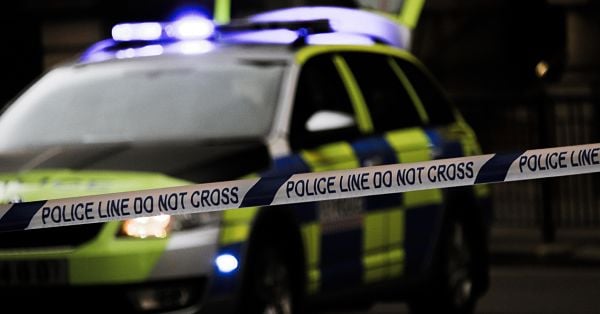Words of Caution and Advice for the Protesters
*Note: If you choose to comment make sure your words are civil, respectful (of others here and elsewhere) and non-inflammatory. Hostile, angry, vicious diatribes will not be posted here. This is a space for calm, rational discussion of theology and ethics—especially from an evangelical Christian perspective. Do not include any hyperlinks in your comment. Do not include lengthy quotations. Do not merely preach a sermon or quote the Bible or someone else. Be brief and stick to the point of the post. If you cite a statistic or controversial fact claim, cite your source. Above all, be calm and kind.
Words of Caution and Advice for the Protesters
I understand the anger about police brutality in America. I do. I get it. I’m angry, too. But the violent protests against police brutality and some of the rhetoric coming out of even the peaceful protests may be counterproductive to the protesters goals. I worry very much that the scenes of looting, pulling down statues, destroying cars and buildings, and even the calls to “defund the police” MAY push many potential allies of reform over to the wrong side of the Great Divide in today’s American society. Or at least cause them to sit this out and not participate in peaceful means of reform.
I understand that many, many of the leaders of the protest movements are peacemakers. I saw one call on her followers to “Go home” when the peaceful protest on and around the steps of a state capitol building became violent. The peaceful protesters mostly left and then the riot began. Watching the riots drives many people who sympathize with the goals of radical reform of society—especially police departments—away from the movement.
Some of the violent protesters (especially participating in property destruction) are really peaceful people who are just out of their own control; their emotion of frustration and anger carries them away. I wish they would stop and think about how these actions might really be counterproductive. (Yes, I also know that many of the violent rioters were/are not really part of the movement for justice and reform.)
A very large portion of American society wants police reform and other reforms in government, but fear anarchy more than they fear police brutality and injustice. My concern here is not to say whether they are right or wrong. My only concern is to suggest that they be considered by the protesters. To get to where we need to be many, many of those people need to be kept on the side of real reform. I fear they will throw up their hands and go silent and do nothing insofar as they become convinced that anarchy is on the agenda or is a possible outcome of the protest movement.
Let me give some examples. Recently in a capital city I visited a group of protesters pulled down a statue—of a Union soldier of the Civil War. Why? Recently I heard a protest leader call for the destruction of Mount Rushmore. Recently SOME protest leaders have called for “defunding police” without explaining what they mean. I have heard some explain what they do not mean, but the call to “defund the police” by itself, without careful explanation, probably will alienate many people who are otherwise sympathetic with the call to radically reform police departments in U.S. counties and cities.
Recently, in a city where I stayed for a while, protestors attacked the city hall building attempting to deface and possibly destroy parts of it. The police assigned to protect the building and its occupants used tear gas and something like “mace” to force the attacking protesters away from the building. The call of “police brutality” went up. People watching that incident unfold on television MAY think the police were justified in protecting public property and occupants. (Even at night there are people working in the building.)
People who have influence on these violent protesters need to speak out to them against random violence and “wilding” and caution them that this does not help the cause. Yes, it gets attention, but much of that attention is negative even from people who sympathize with the overall cause of creating a just and equal society without racist acts on the parts of those with power and authority.
Again, I understand the frustration and anger of victims of oppression, but I also strongly suspect that the violence and calls for defunding police departments will hurt the cause of justice through real reform.
I will dare to use an illustration here. When I was a kid and someone in authority yelled at me for some act they considered wrong, all I could hear was the loudness of their voice. Once, in sixth grade, the teacher literally dragged me out of the classroom and into the hallway and yelled into my face with great anger. I well remember that I could not “hear” the message because of the way in which she was expressing it. All I could “hear” was a loud and angry voice and all I could see was her extremely angry face and all I could feel was her hands tightly gripping my upper arms. I never did know what I did wrong or why she was so angry. To this day I wonder because nothing like that every happened to me before or afterwards.
That’s a lame illustration but might express something of what I intend here. After that incident I don’t think I ever learned anything from that teacher. She was, as they say, “dead to me.”













